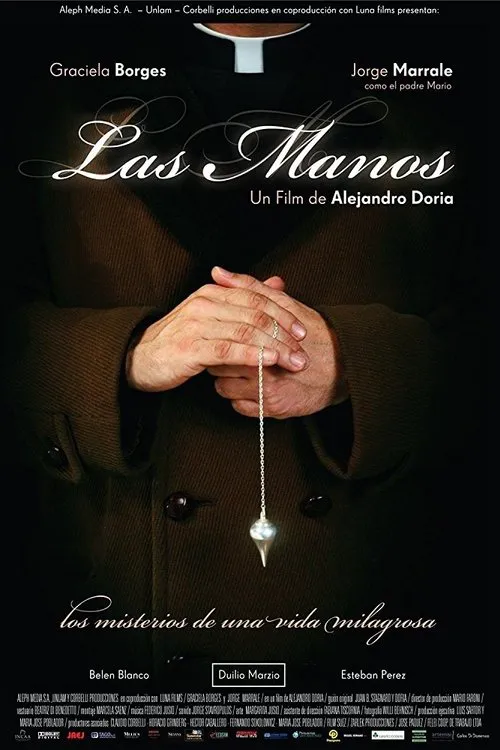The Hands

Plot
In the thought-provoking Italian drama "The Hands" (Le Mani, 1962), acclaimed director Ermanno Olmi masterfully weaves a poignant tale of faith, power, and redemption. Set in the rural countryside of Italy, the film revolves around the life of young priest Mario Pantaleo, a devout and compassionate man played by Umberto Orsini. Mario is an ordinary priest, struggling to maintain his faith in a world increasingly skeptical of the Church. However, his life takes an extraordinary turn when he develops a mysterious gift – the ability to diagnose and cure diseases through the laying on of hands. This phenomenon sparks not only awe but also suspicion, as it defies the conventional understanding of medical science. Initially, Mario is perplexed by this newfound power, but he soon realizes that his touch can heal the afflicted. News of his miraculous abilities spreads rapidly, and people from nearby villages flock to his church, seeking his intervention. With each successful healing, Mario's confidence grows, and he becomes increasingly convinced that his actions are a manifestation of divine intervention. However, not everyone is thrilled about Mario's newfound abilities. The local police force, headed by the ruthless and cynical Inspector De Luca (played by Renato Terra), view his powers as a threat to their authority and the established order. They fear that Mario's actions might undermine the Church's control over the community, and possibly even question the legitimacy of the Church's own authority. The Church hierarchy, too, takes notice of Mario's exploits and is concerned about the implications of his healing powers. They view his actions as a potential threat to the Church's dogma and the concept of divine intervention. The Bishop, played by Giorgio Costantini, sends his emissaries to persuade Mario to refrain from practicing his gift, lest it cause a stir and attract unwanted attention from the authorities. As Mario navigates this treacherous landscape, he finds himself at the center of a maelstrom of conflicting forces. The local community is divided, with some people viewing him as a saint and others as a charlatan. The police and the Church seem determined to undermine his efforts, while his faith is increasingly tested by the weight of responsibility and the moral dilemmas that come with his gift. The central theme of "The Hands" revolves around the nature of faith, specifically the tension between faith and institutional authority. Mario's gift becomes a symbol of the conflict between the sacred and the mundane, with the Church hierarchy struggling to maintain control over the narrative. Olmi's nuanced direction underscores the complexities of faith, exploring the intricate relationships between spiritual conviction, personal conviction, and the search for truth. The film's cinematography, handled by Pier Ludovico Pavoni, captures the stark beauty of the Italian landscape, emphasizing the connection between the natural world and the spiritual. The performances, particularly that of Umberto Orsini, bring depth and nuance to the story, conveying the emotional turmoil and inner conflict that Mario experiences as he grapples with his miraculous abilities. Through "The Hands," Ermanno Olmi offers a searing critique of bureaucratic power and the ways in which institutions maintain control over individuals. The film asks difficult questions about the nature of faith and the relationship between the individual and the Church. It is a powerful exploration of the human condition, a meditation on the complexities of existence, and a reminder that the line between the sacred and the mundane is often blurred.
Reviews
Recommendations



